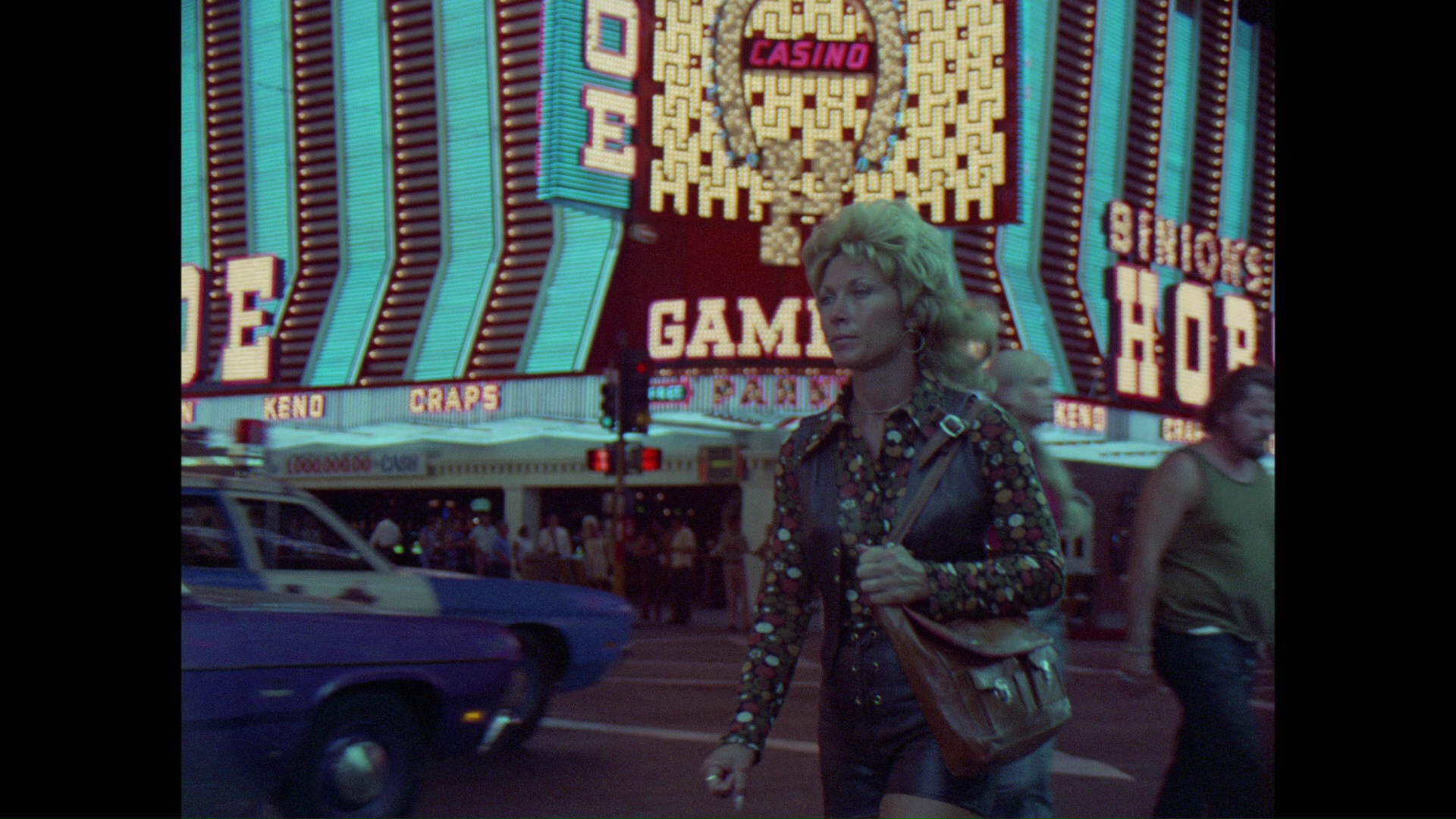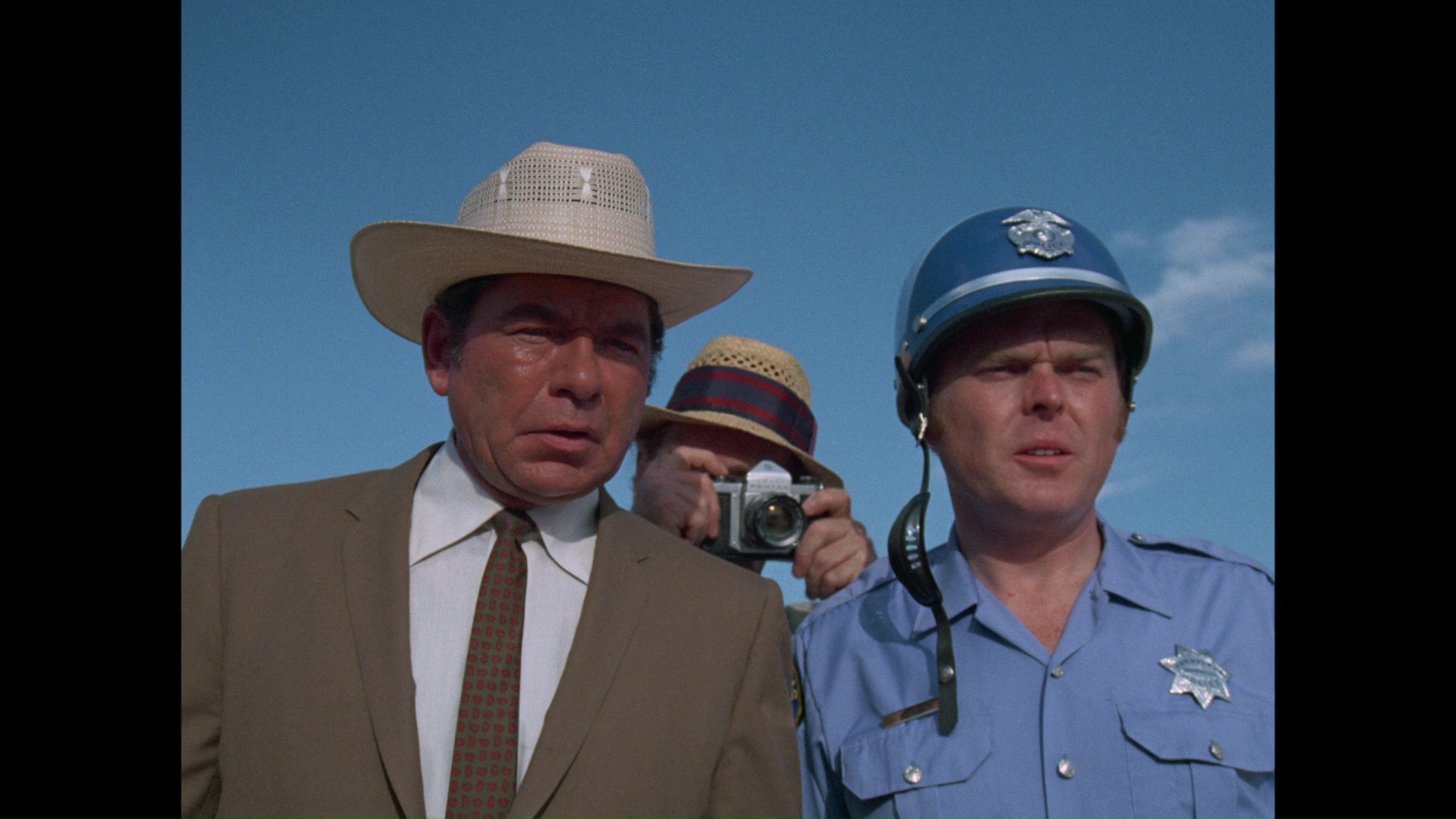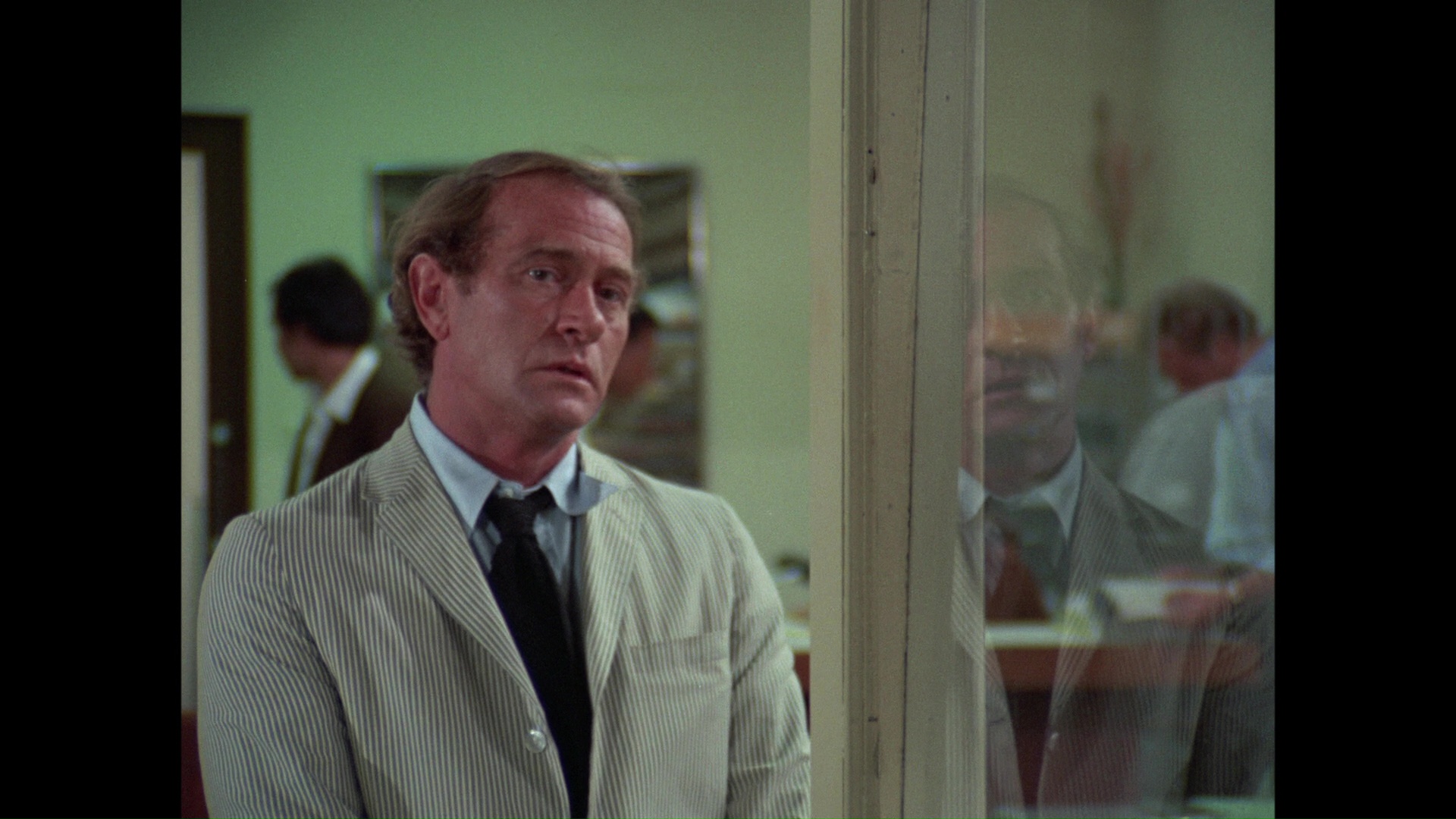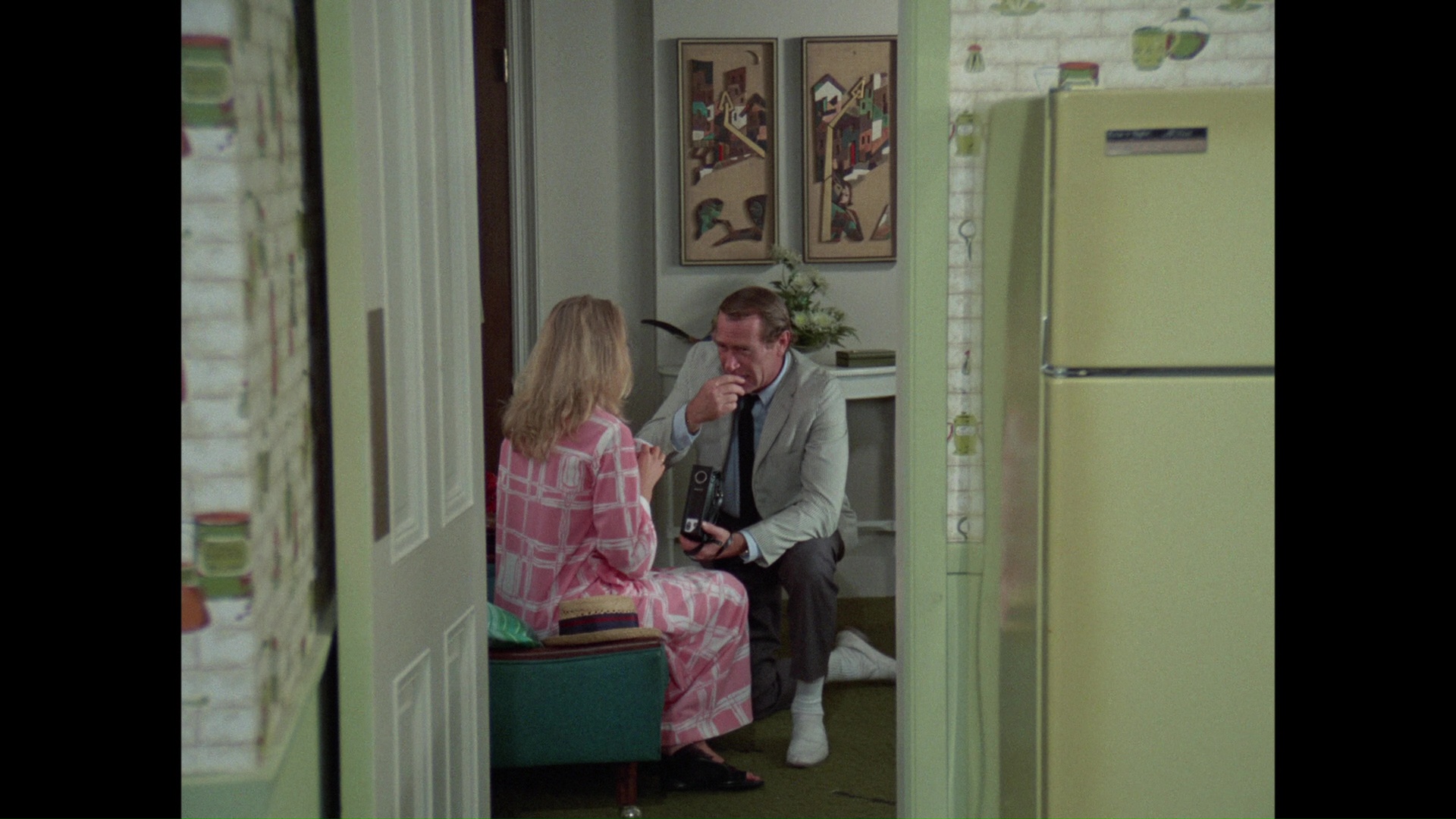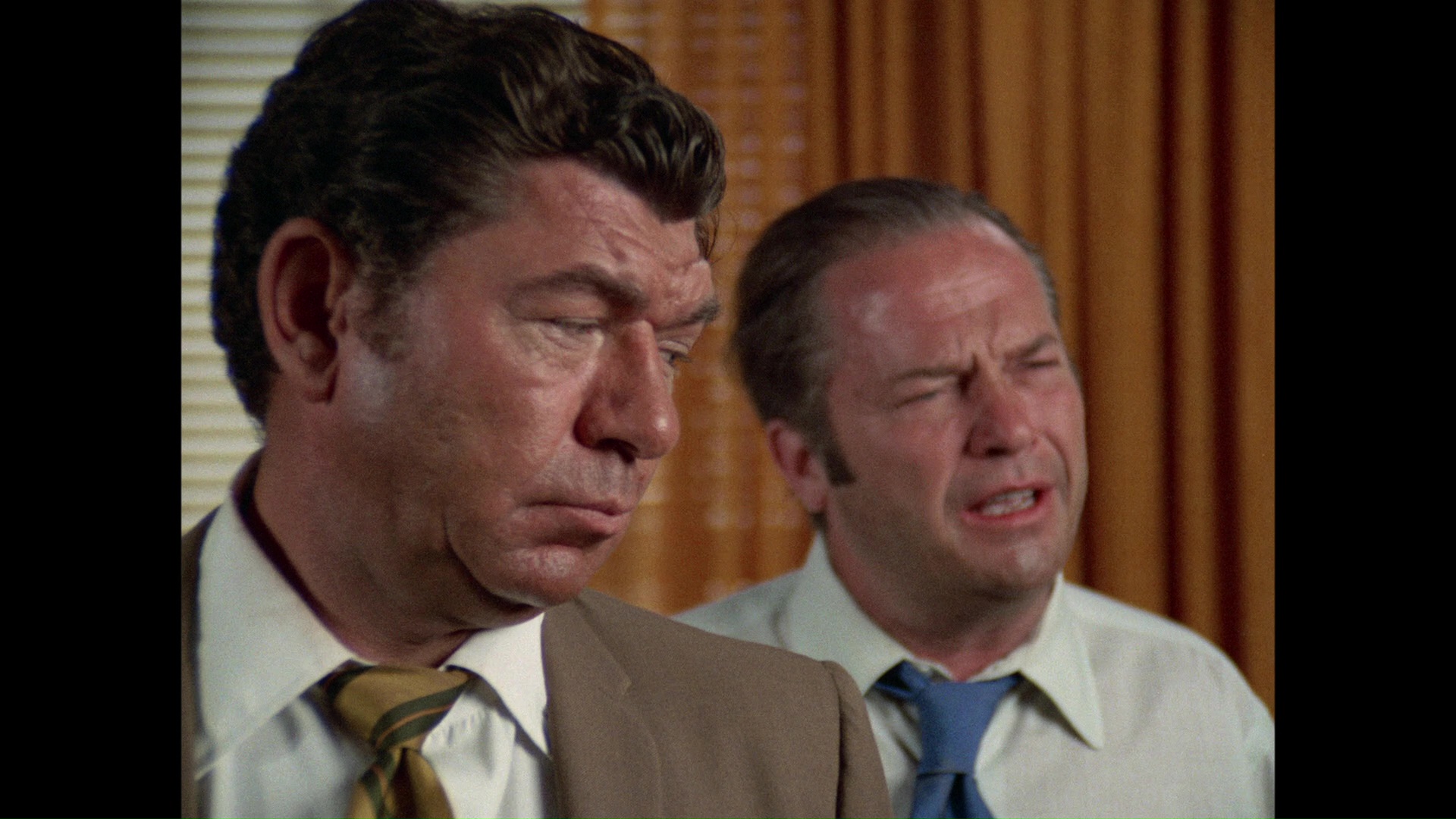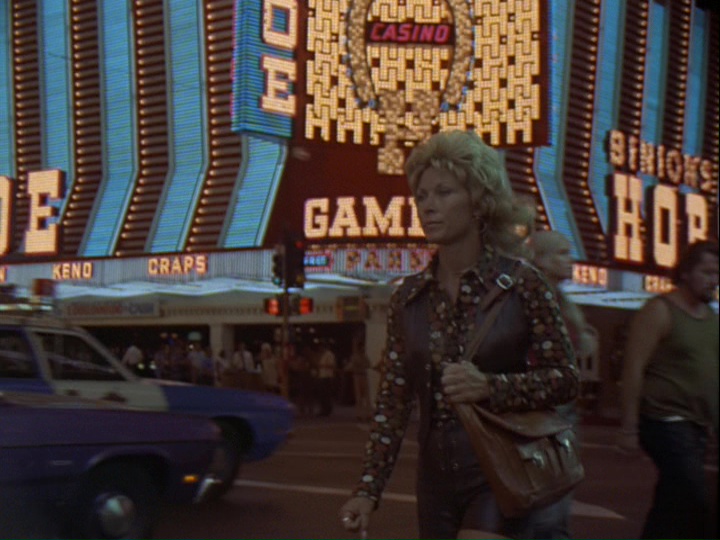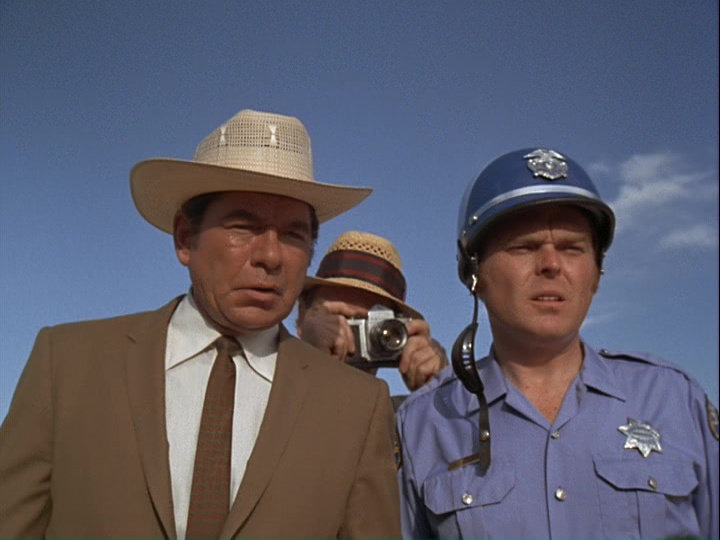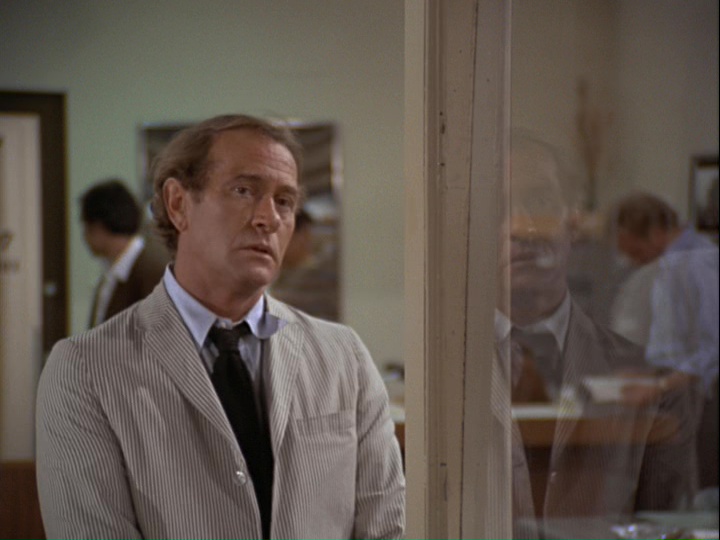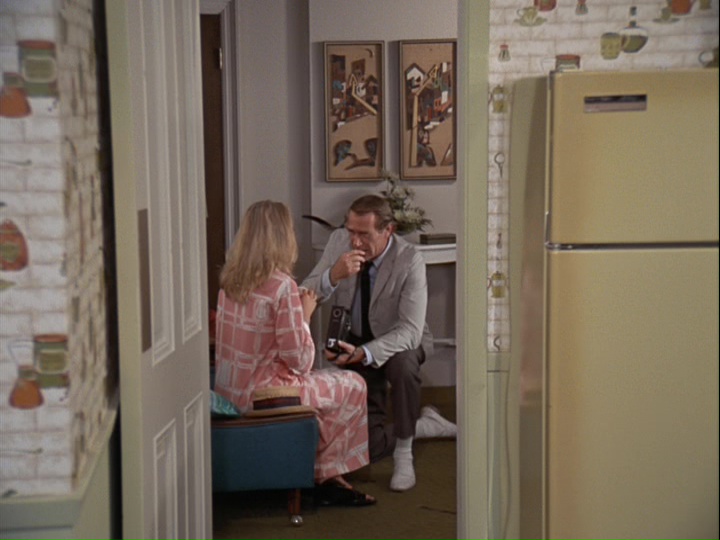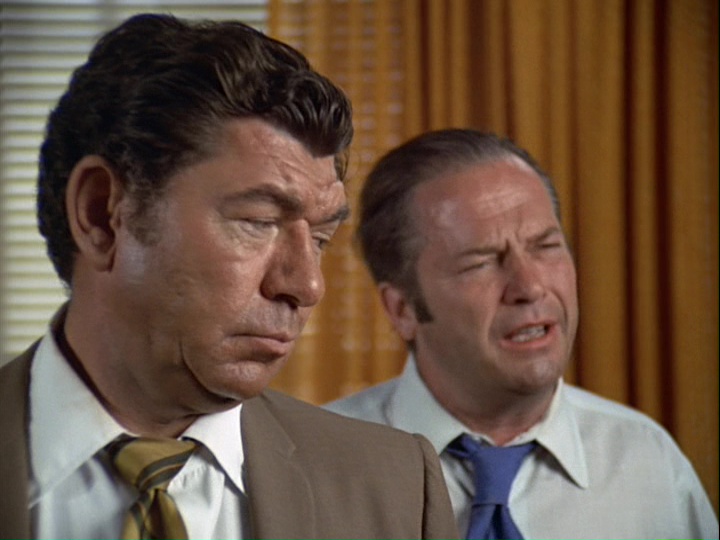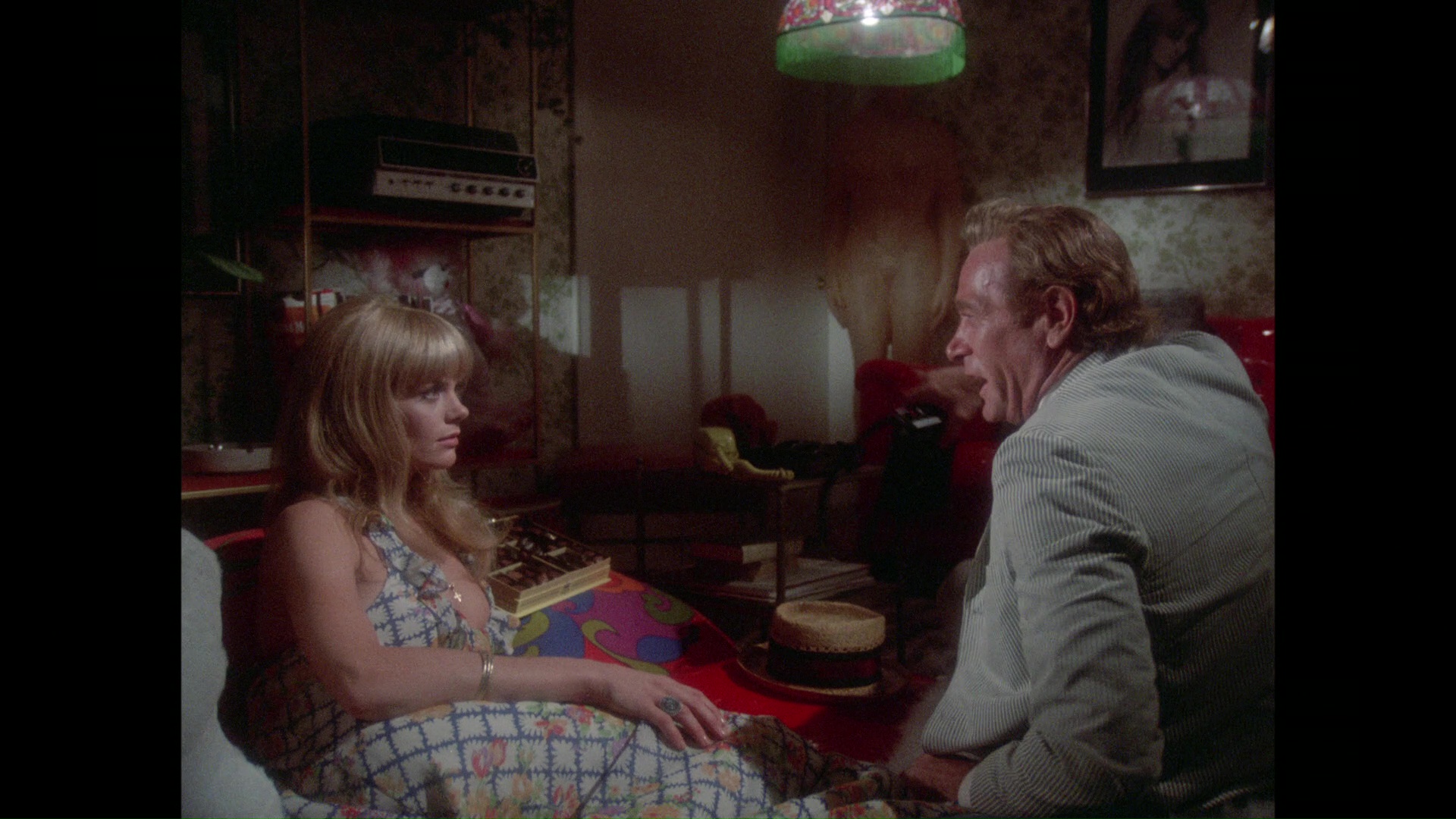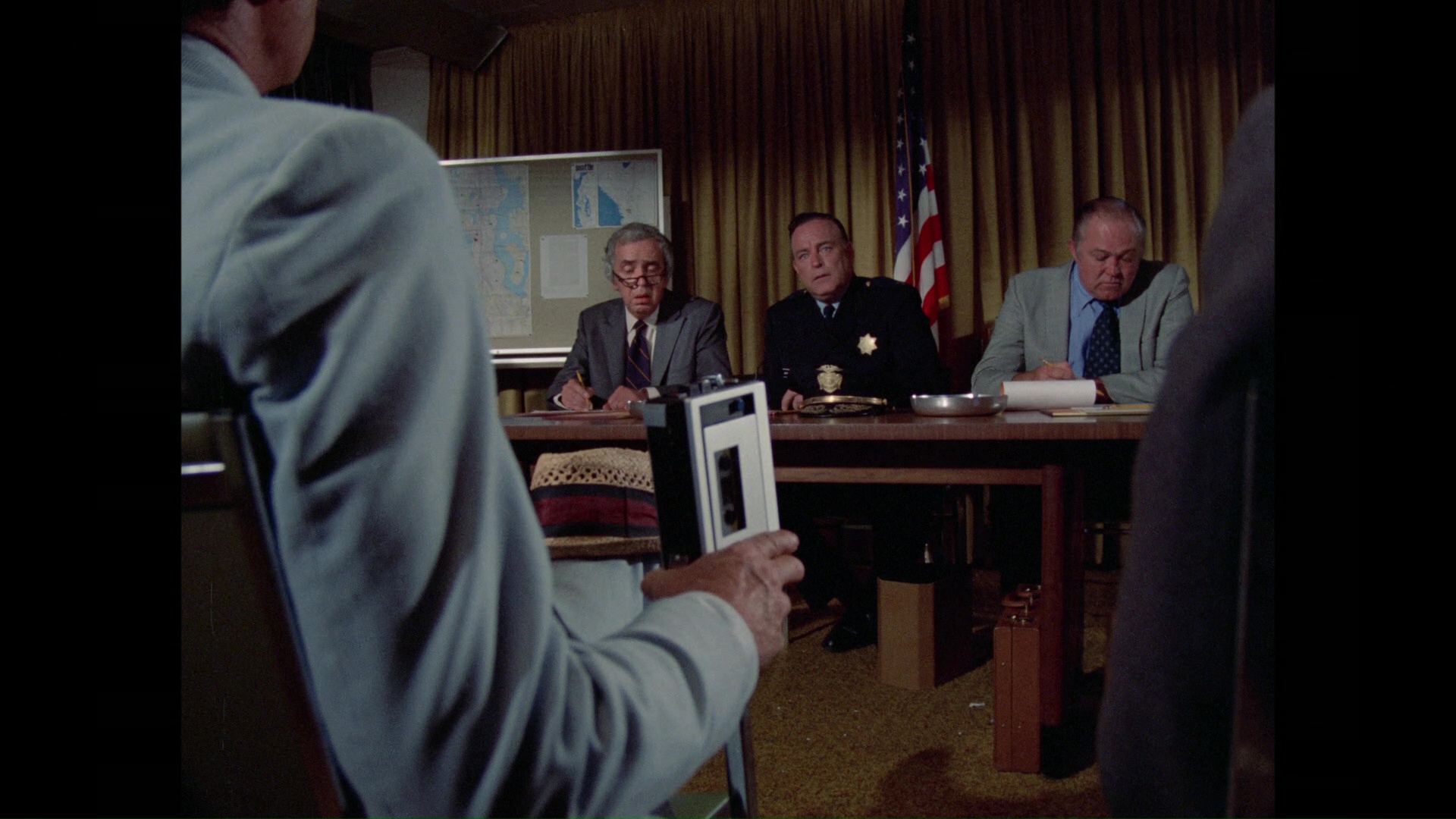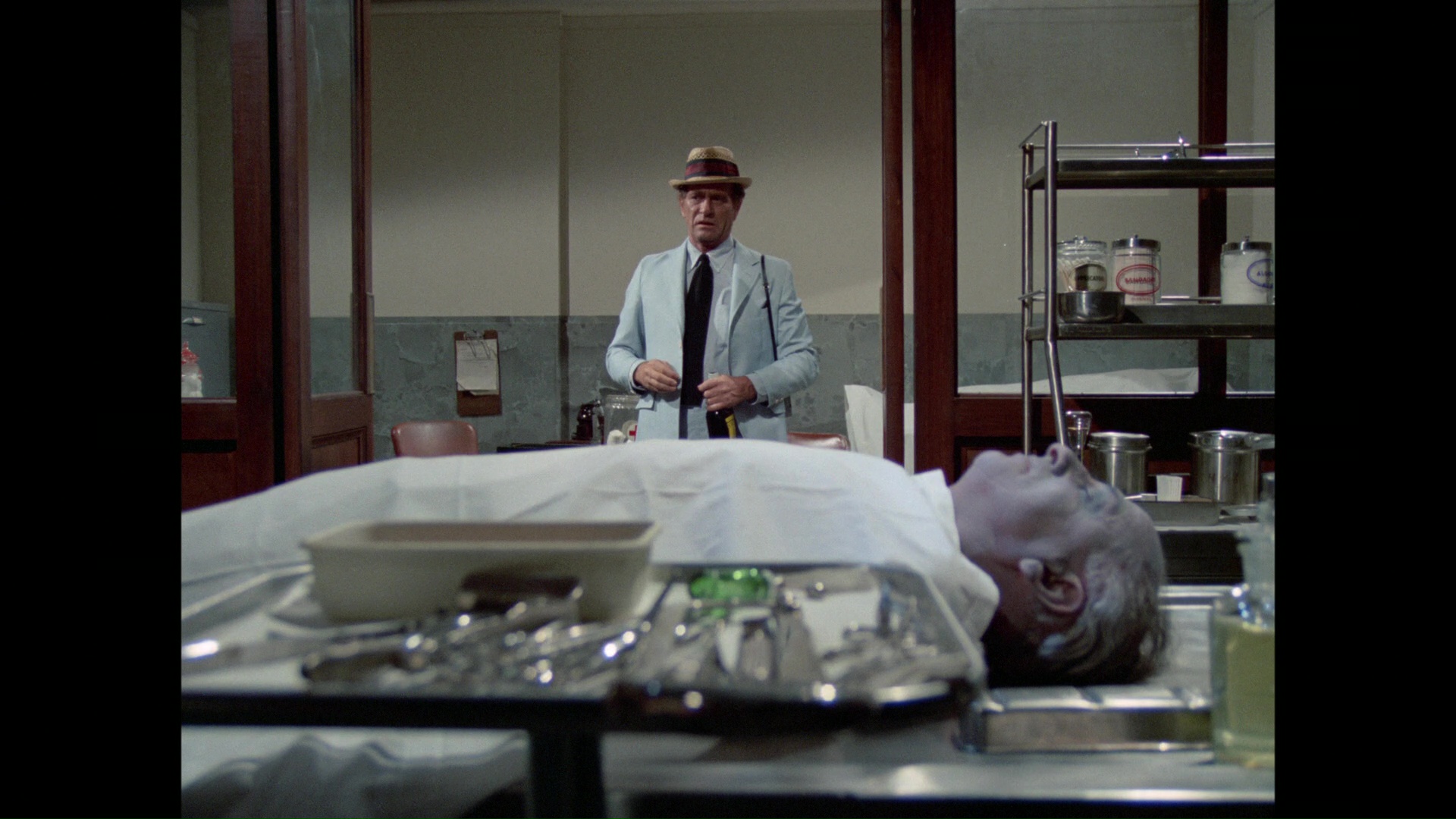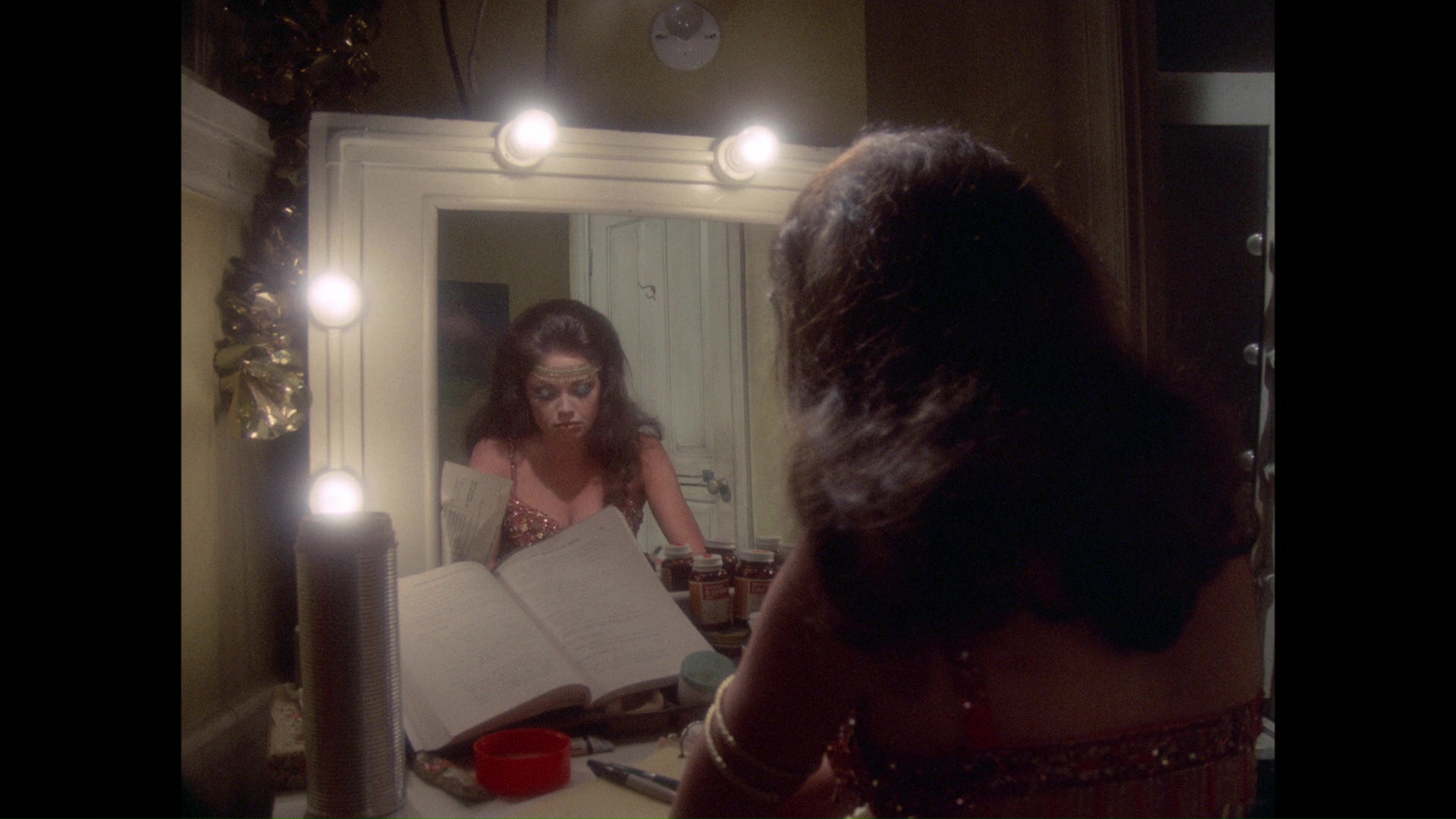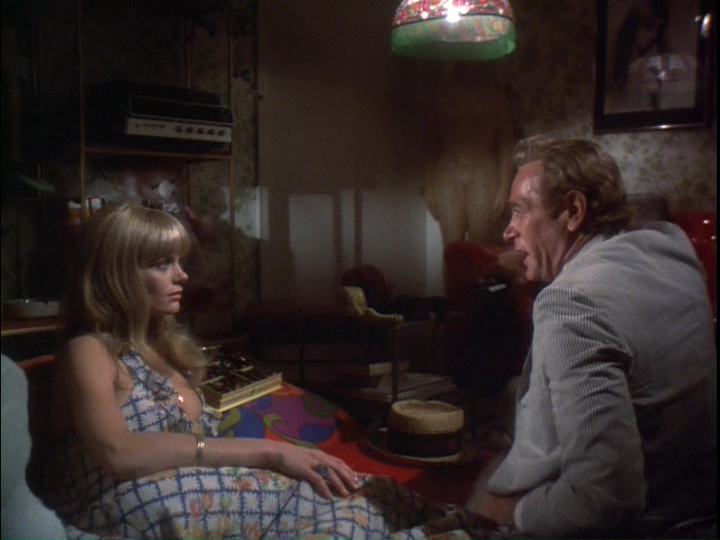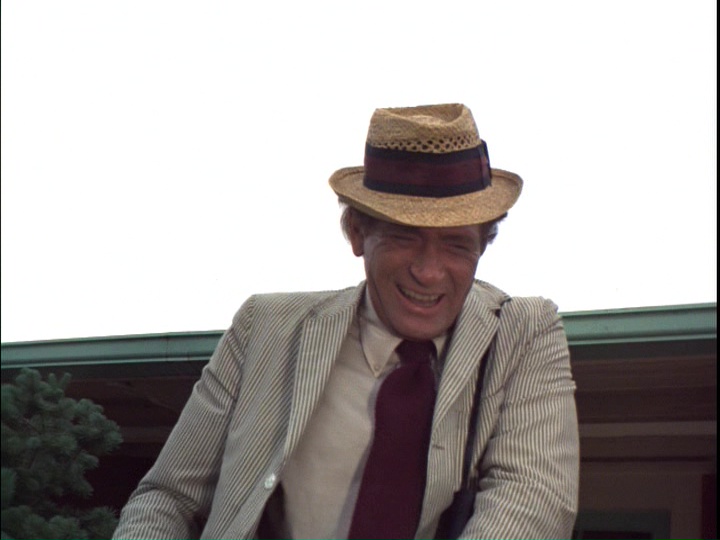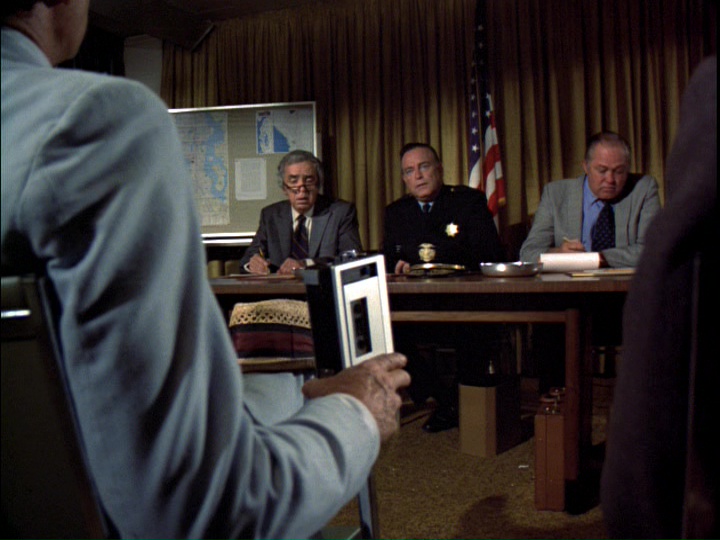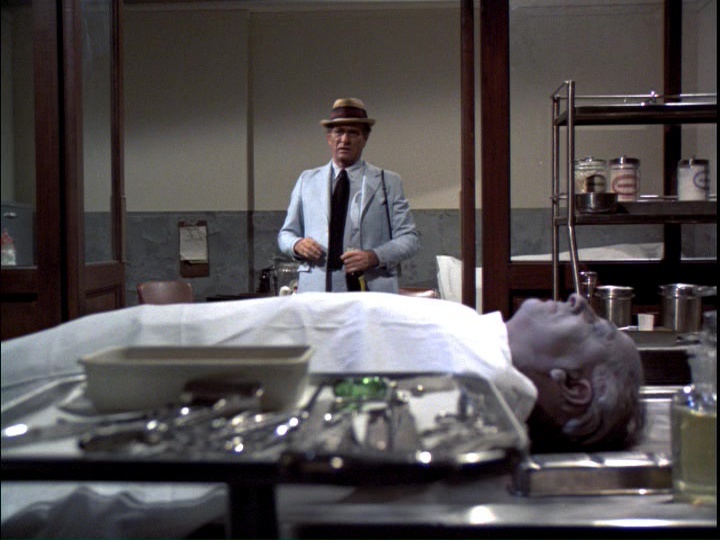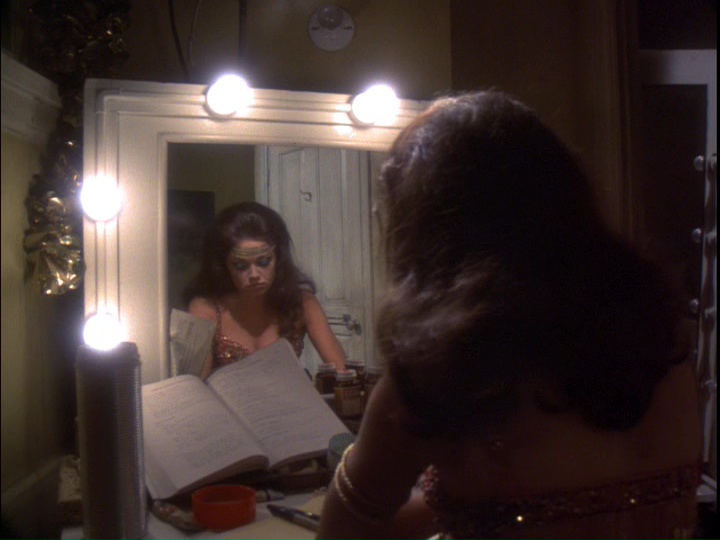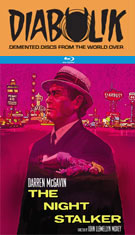
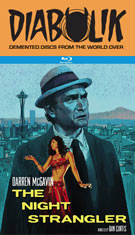
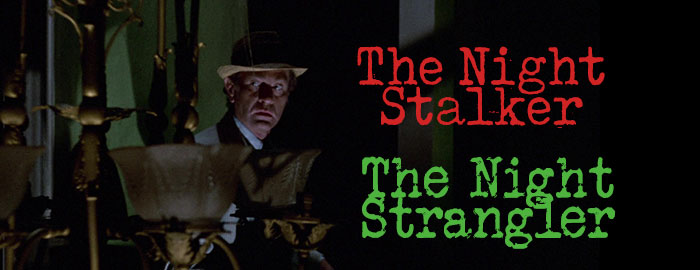
THE NIGHT STALKER
Color, 1946 , 74 mins. 41 secs.
Directed by John Llewellyn Moxey
Starring Darren McGavin, Carol Lynley, Simon Oakland, Ralph Meeker, Claude Akins, Charles McGraw, Kent Smith, Elisha Cook Jr., Barry Atwater
THE NIGHT STRANGER
Color, 1973, 90 mins. 13 secs
Directed by Dan Curtis
Starring Darren McGavin, Jo Ann Pflug, Simon Oakland, Scott Brady, Wally Cox, Margaret Hamilton, John Carradine, Al Lewis
Kino Lorber (Blu-ray & DVD) (US RA/R1 HD/NTSC), MGM (DVD) (US R1 NTSC), Anchor Bay (DVD) (US R1 NTSC)
THE NIGHT STALKER
Color, 1946 , 74 mins. 41 secs.
Directed by John Llewellyn Moxey
Starring Darren McGavin, Carol Lynley, Simon Oakland, Ralph Meeker, Claude Akins, Charles McGraw, Kent Smith, Elisha Cook Jr., Barry Atwater
THE NIGHT STRANGER
Color, 1973, 90 mins. 13 secs
Directed by Dan Curtis
Starring Darren McGavin, Jo Ann Pflug, Simon Oakland, Scott Brady, Wally Cox, Margaret Hamilton, John Carradine, Al Lewis
Kino Lorber (Blu-ray & DVD) (US RA/R1 HD/NTSC), MGM (DVD) (US R1 NTSC), Anchor Bay (DVD) (US R1 NTSC)
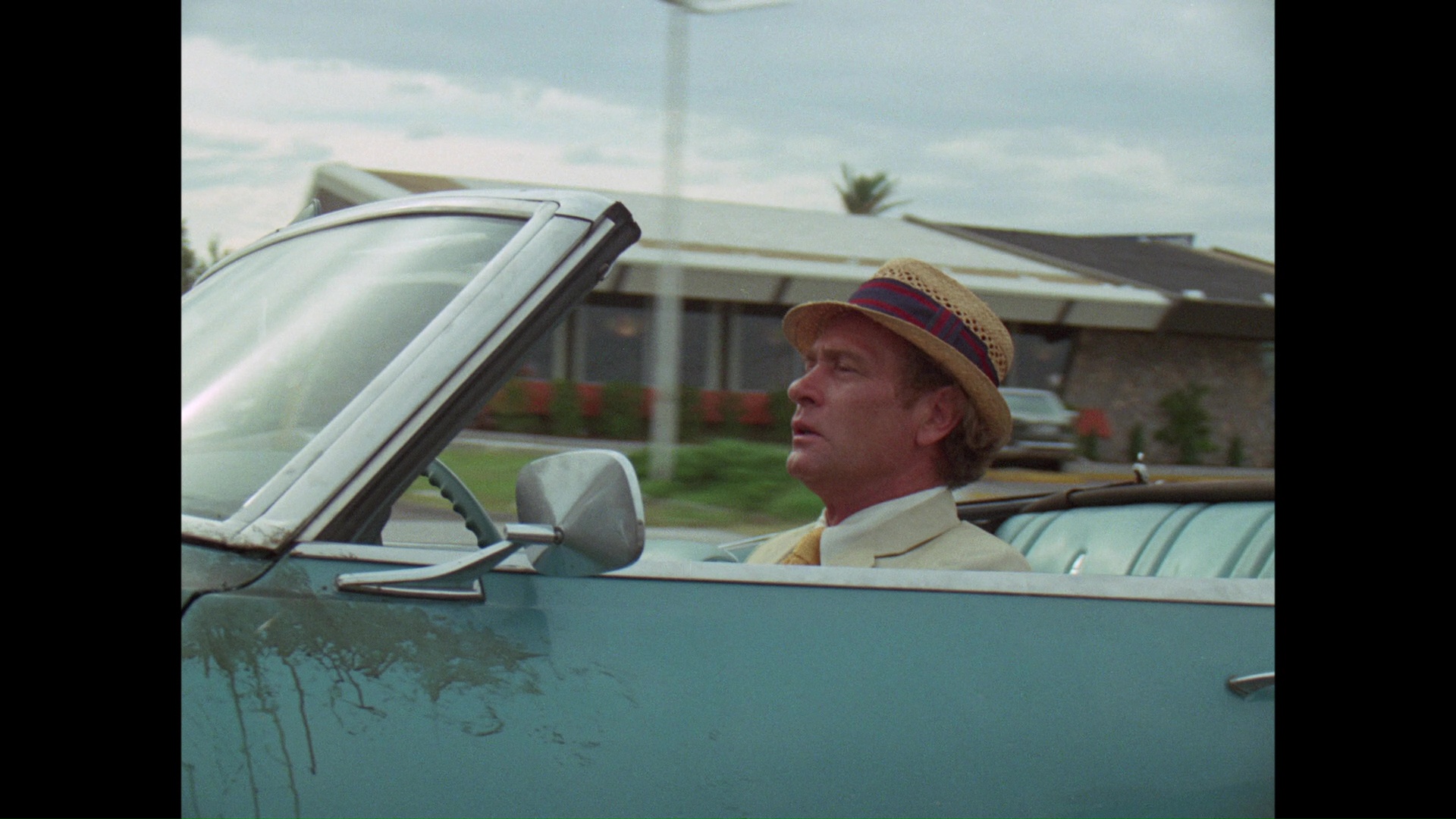 on ABC in 1972,
on ABC in 1972,  The Night Stalker is the single most important horror crossover in the made-for-TV realm in the same era that saw the genre suddenly packing in huge audiences with Rosemary's Baby and The Exorcist. The caliber of the Edgar Award-winning script was a major factor thanks to the great Richard Matheson, who took a yet-to-be-published novel by Jeffrey Grant Rice and turned it into a showcase for one of the genre's most memorable heroes, rumpled newspaper reporter Carl Kolchak. Embodied by the great Darren McGavin, he's a far cry from the usual erudite vampire hunters and teenage protagonists viewers were used to seeing in vampire stories, and the crime story aesthetic gave the film a chilling immediacy that had viewers glued to their screens and chattering excitedly about it the next morning. The success of the film would inspire a sequel, The Night Strangler, as well as a beloved, single-season TV series (Kolchak: The Night Stalker), a very short-lived 2005 series that captured none of the original's magic, and a slew of homages, most notably The X-Files and Supernatural.
The Night Stalker is the single most important horror crossover in the made-for-TV realm in the same era that saw the genre suddenly packing in huge audiences with Rosemary's Baby and The Exorcist. The caliber of the Edgar Award-winning script was a major factor thanks to the great Richard Matheson, who took a yet-to-be-published novel by Jeffrey Grant Rice and turned it into a showcase for one of the genre's most memorable heroes, rumpled newspaper reporter Carl Kolchak. Embodied by the great Darren McGavin, he's a far cry from the usual erudite vampire hunters and teenage protagonists viewers were used to seeing in vampire stories, and the crime story aesthetic gave the film a chilling immediacy that had viewers glued to their screens and chattering excitedly about it the next morning. The success of the film would inspire a sequel, The Night Strangler, as well as a beloved, single-season TV series (Kolchak: The Night Stalker), a very short-lived 2005 series that captured none of the original's magic, and a slew of homages, most notably The X-Files and Supernatural.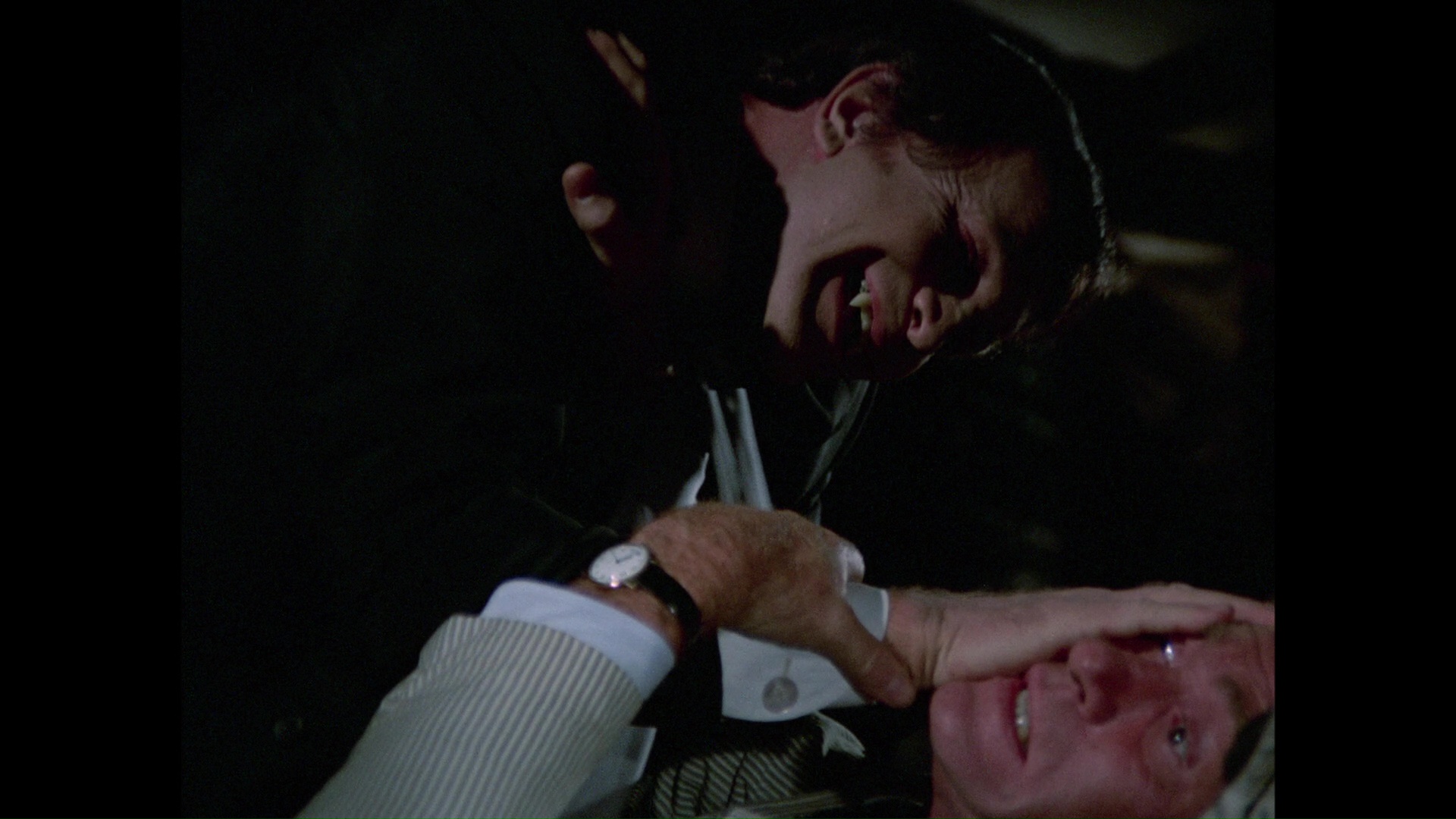 Gail
Gail 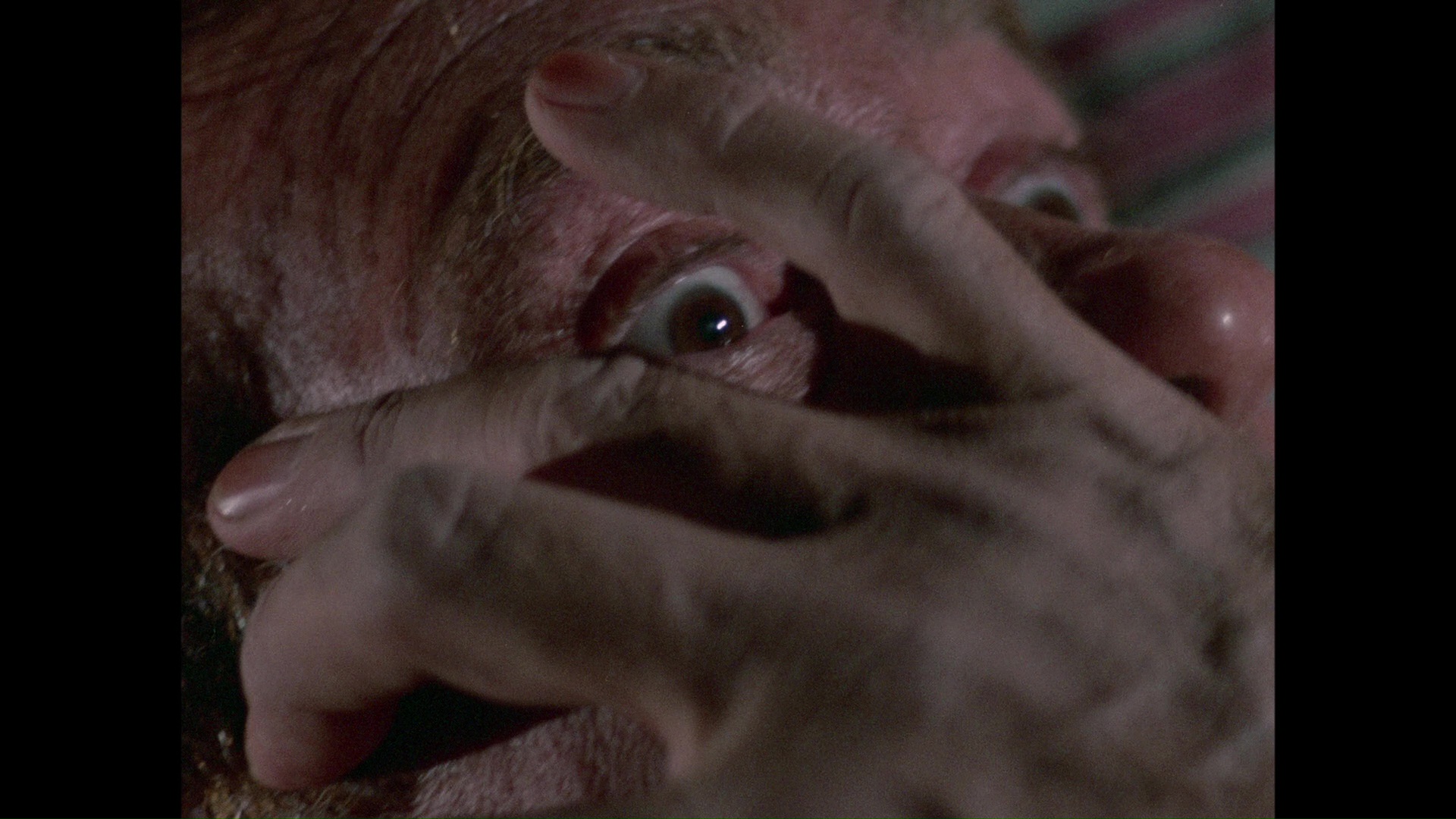 (Lynley), he starts to investigate vampire myths as they might connect to the exsanguinated victims. He soon connects the crimes to Janos Skorzeny (Atwater), whom he believes to be a vampire, but no amount of evidence or persuasion can seem to get anyone else on board with his theory. Kolchak decides to forge ahead, putting his life at risk but finding a danger even greater than the possible bloodsucker.
(Lynley), he starts to investigate vampire myths as they might connect to the exsanguinated victims. He soon connects the crimes to Janos Skorzeny (Atwater), whom he believes to be a vampire, but no amount of evidence or persuasion can seem to get anyone else on board with his theory. Kolchak decides to forge ahead, putting his life at risk but finding a danger even greater than the possible bloodsucker. 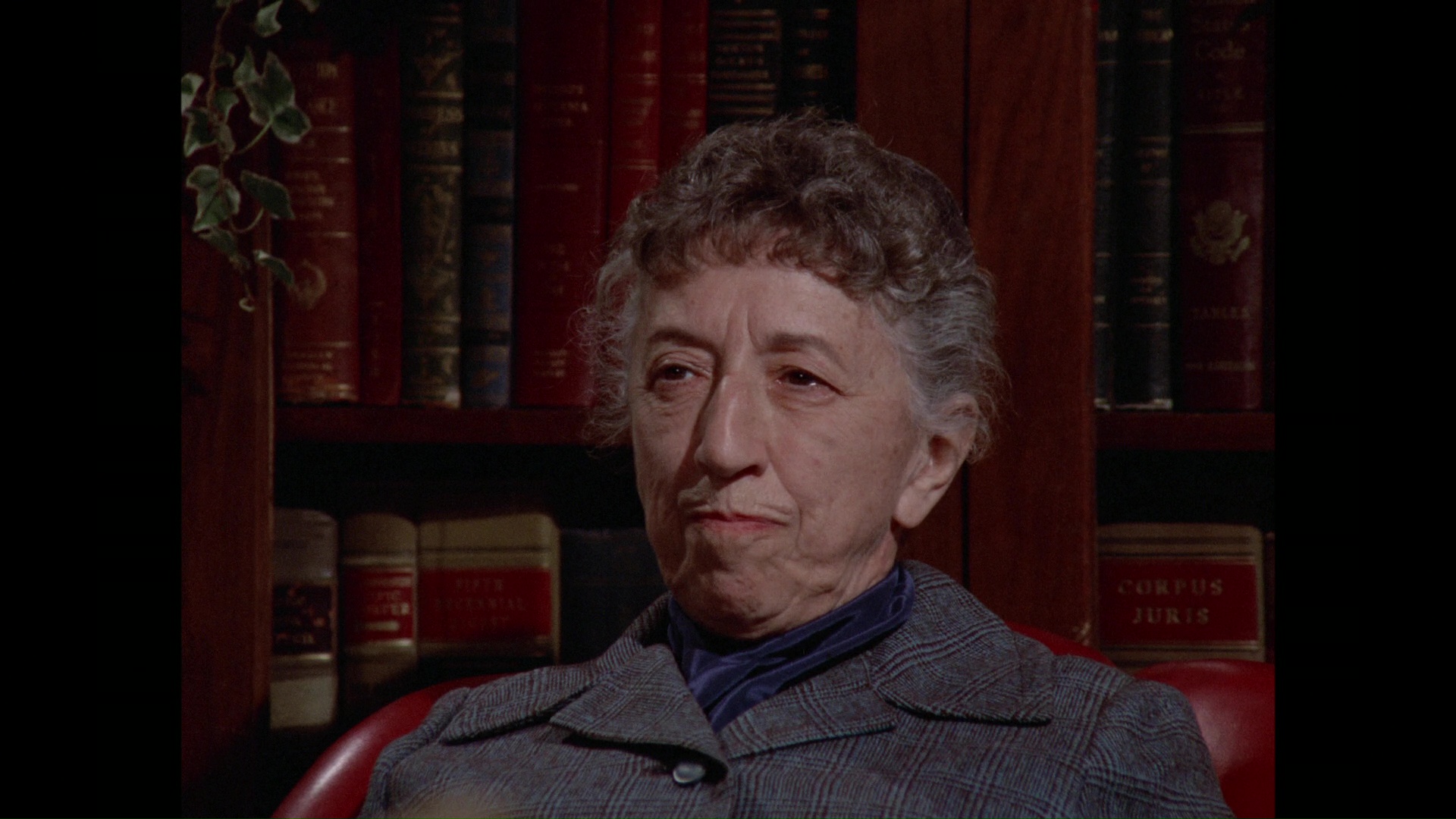
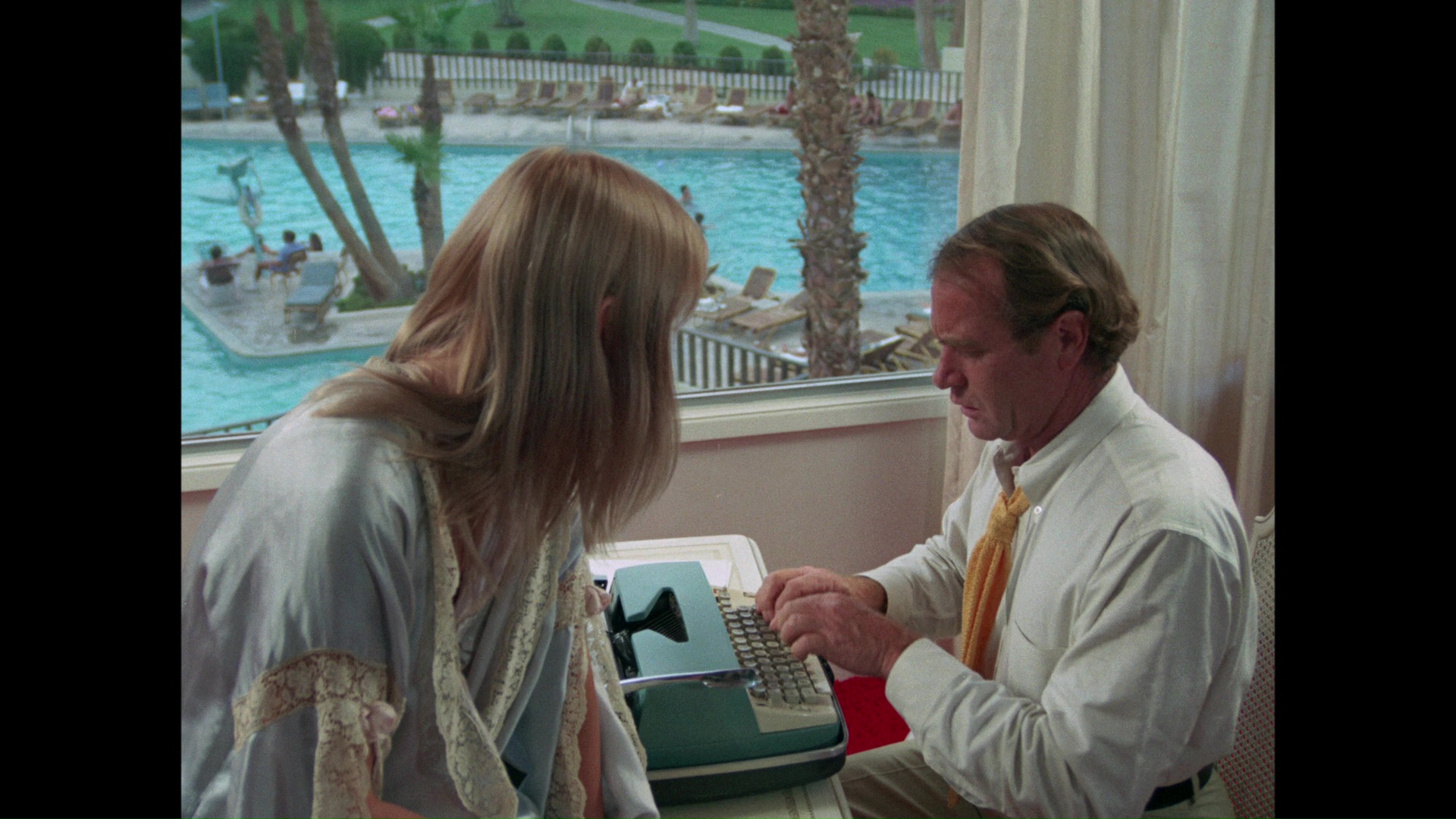 Curtis wound up taking charge as director as well for the Matheson-penned sequel, The Night Strangler, which was broadcast the following year. Here we find Kolchak relocated to Seattle after being ordered out of Las Vegas and now working with Vincenzo again under less than amicable terms. Of course there's another threat stalking the city streets (and perhaps living beneath them), tied to a Civil War doctor named Richard Malcolm. The managing editor, Crossbinder (Carradine), isn't exactly in a mood to deal with Kolchak's supernatural conspiracy theories, and of course there's another cover-up involved with the mounting tally of nocturnal murder victims, exotic dancers with crushed necks and corpse flesh residue on their bodies. Again the Matheson-Curtis-McGavin trio prove to be a charm in what would be their last collaboration all together, and the subterranean finale is a nicely eerie set piece that stacks up nicely against its predecessor.
Curtis wound up taking charge as director as well for the Matheson-penned sequel, The Night Strangler, which was broadcast the following year. Here we find Kolchak relocated to Seattle after being ordered out of Las Vegas and now working with Vincenzo again under less than amicable terms. Of course there's another threat stalking the city streets (and perhaps living beneath them), tied to a Civil War doctor named Richard Malcolm. The managing editor, Crossbinder (Carradine), isn't exactly in a mood to deal with Kolchak's supernatural conspiracy theories, and of course there's another cover-up involved with the mounting tally of nocturnal murder victims, exotic dancers with crushed necks and corpse flesh residue on their bodies. Again the Matheson-Curtis-McGavin trio prove to be a charm in what would be their last collaboration all together, and the subterranean finale is a nicely eerie set piece that stacks up nicely against its predecessor. 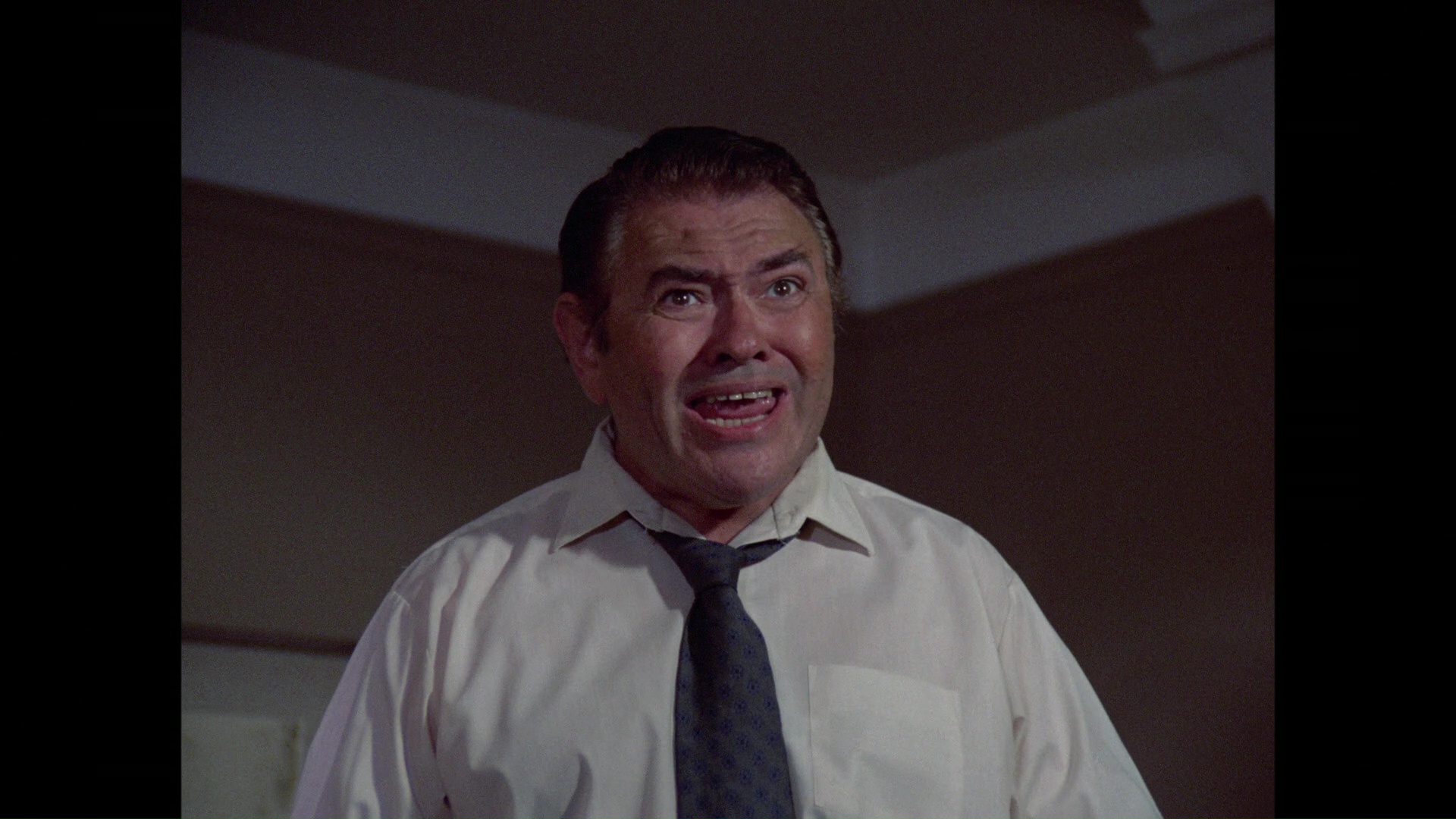
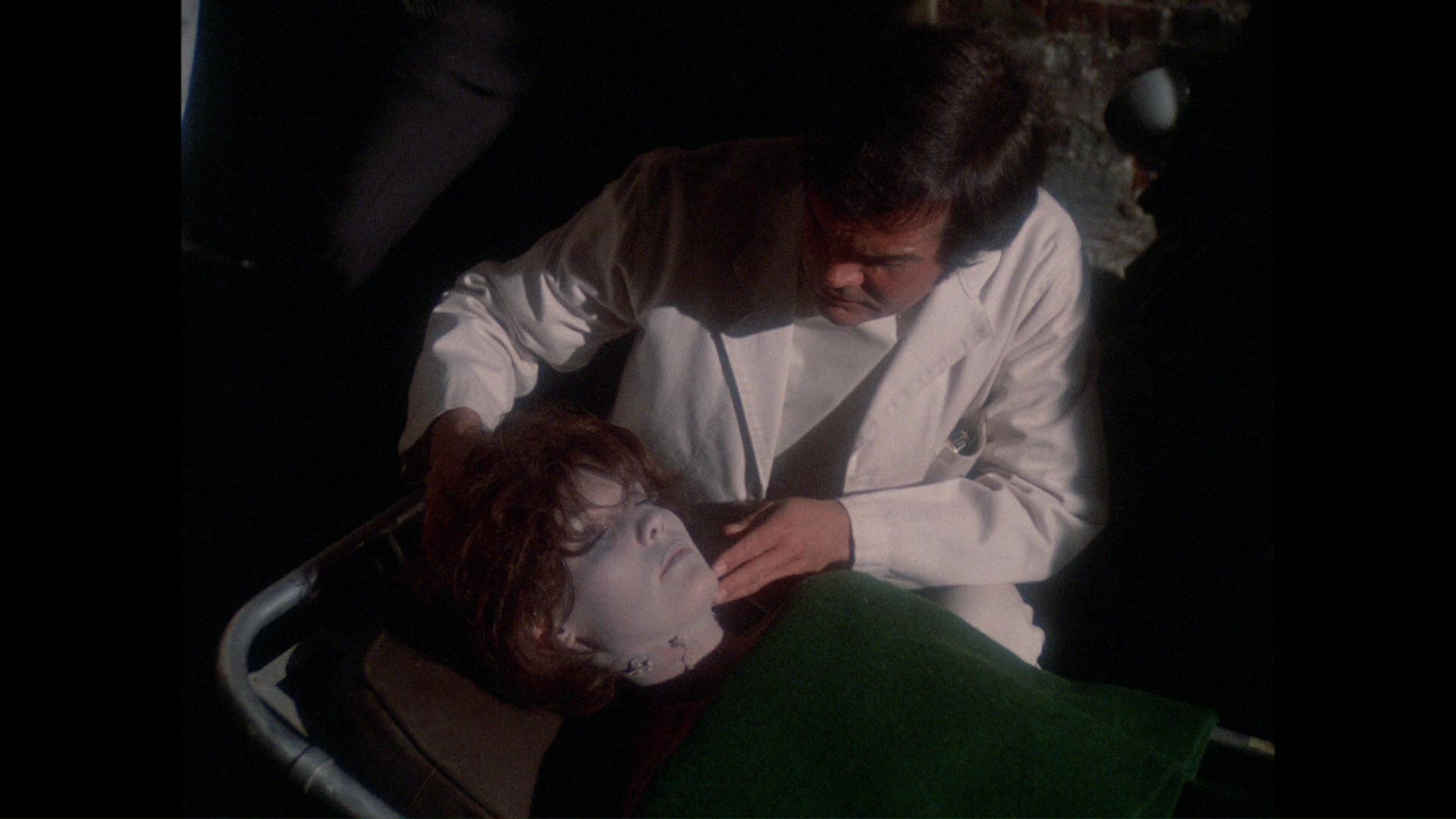 In 2018, Kino Lorber gave them their first standalone digital editions as separate Blu-ray and DVD releases, with new 4K-sourced transfers allowing them to look better than ever. The bump in detail is substantial, especially in darker scenes, and The Night Strangler in particular is truly a night and day difference compared to the older transfer with major amounts of new visual information now on display. The framing on the first film adjusts a bit tighter, but it doesn't really affect the compositions one way or another. TheEnglish DTS-HD MA mono tracks are also in fine shape, with optional English SDH subtitles included. Both films come with new audio commentaries by Video Watchdog's Tim Lucas, whose monster kid inclinations really come out here as he dives into the TV history of Dan Curtis, the source novel, the state of television movie horror at the time, the wave of modern '70s vampires, Matheson's literary importance, the anti-establishment undercurrents in the story, and the longstanding influence of Kolchak, just for starters. His suggestion about who he'd cast in a new revival of Kolchak is quite inspired, too, and he does his best to identity a slew of bit players in both films who haven't been officially credited.
In 2018, Kino Lorber gave them their first standalone digital editions as separate Blu-ray and DVD releases, with new 4K-sourced transfers allowing them to look better than ever. The bump in detail is substantial, especially in darker scenes, and The Night Strangler in particular is truly a night and day difference compared to the older transfer with major amounts of new visual information now on display. The framing on the first film adjusts a bit tighter, but it doesn't really affect the compositions one way or another. TheEnglish DTS-HD MA mono tracks are also in fine shape, with optional English SDH subtitles included. Both films come with new audio commentaries by Video Watchdog's Tim Lucas, whose monster kid inclinations really come out here as he dives into the TV history of Dan Curtis, the source novel, the state of television movie horror at the time, the wave of modern '70s vampires, Matheson's literary importance, the anti-establishment undercurrents in the story, and the longstanding influence of Kolchak, just for starters. His suggestion about who he'd cast in a new revival of Kolchak is quite inspired, too, and he does his best to identity a slew of bit players in both films who haven't been officially credited. 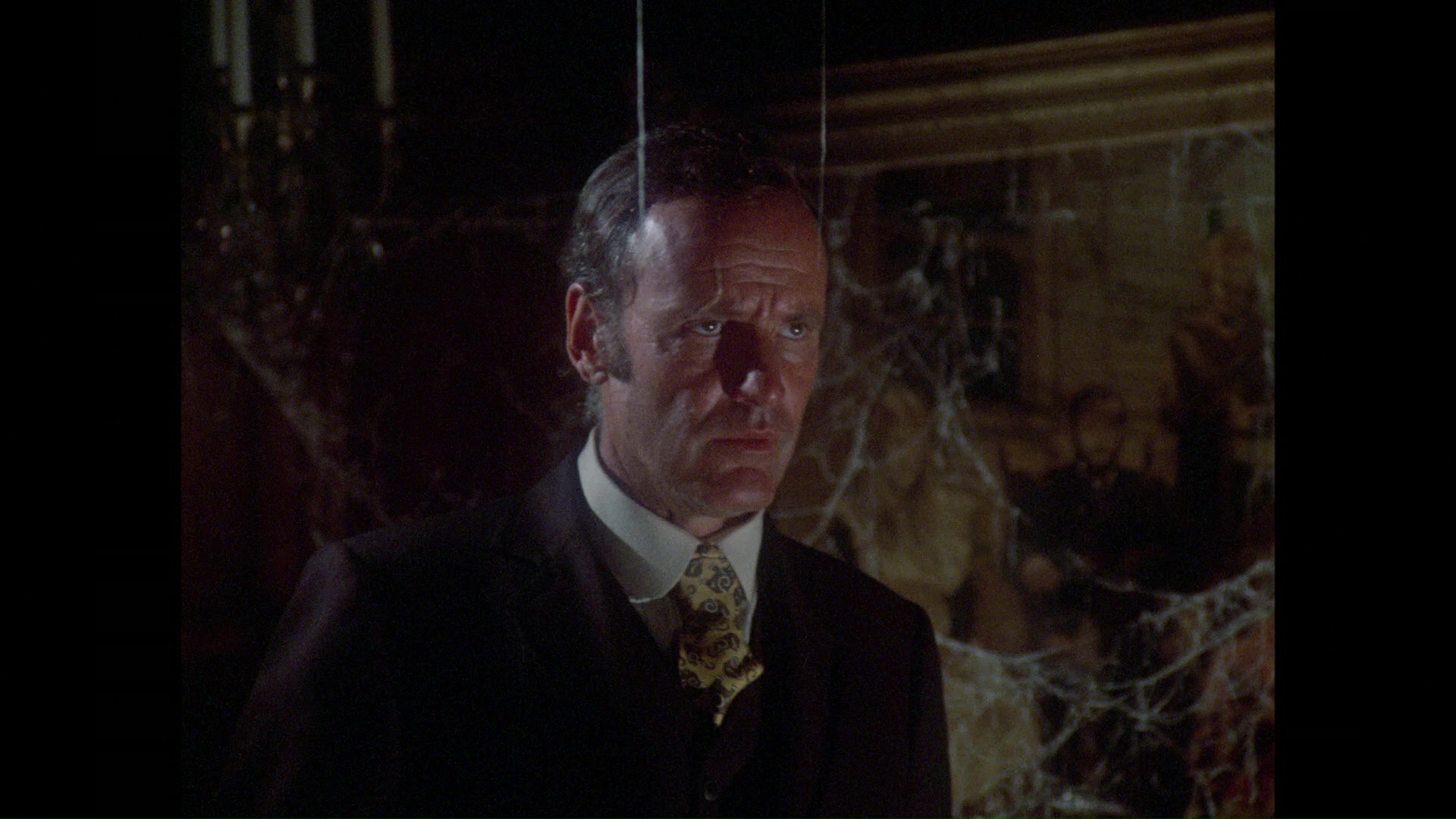 for the script that overcame any doubts he had about doing more horror apart from Dark Shadows. A new interview with Moxey (10m24s) touches on some of the tensions with Curtis that led to the latter taking the reins on the sequel, but he otherwise recalls the experience fondly with particular
for the script that overcame any doubts he had about doing more horror apart from Dark Shadows. A new interview with Moxey (10m24s) touches on some of the tensions with Curtis that led to the latter taking the reins on the sequel, but he otherwise recalls the experience fondly with particular  praise for the cast and script as well as the unique campfire quality of making films for TV versus the big screen. In "A Little Night Music" (10m1s) with composer Bob Cobert (who scored nearly everything Dan Curtis touched) is a lively reminiscence with plenty of thoughts about his musical approach, most notably the bold decision to leave the main titles music-free over initial network protests. That same featurette is carried over to The Night Strangler, which also sports the older MGM featurette, "Directing The Night Strangler" (7m29s), with Curtis chatting more about his earlier network TV gigs, an alternate idea pitched for the sequel, and the enduring appeal of these films thanks to quality. Both releases in their Blu-ray iterations feature limited slipcases (showcasing some gorgeous new art by Sean Phillips) and booklet essays by author Simon Abrams, which are best read in tandem as they offer a handy history of the two films' evolutions from page to screen. (For some reason the opening line of the Night Stalker essay refers to the film by the wrong title, so if you're thrown for a moment, that's why.) They're full of tidbits like the temporary falling out between McGavin and Curtis that would spawn The Norliss Tapes and make for a fine way to cap off two essential genre releases.
praise for the cast and script as well as the unique campfire quality of making films for TV versus the big screen. In "A Little Night Music" (10m1s) with composer Bob Cobert (who scored nearly everything Dan Curtis touched) is a lively reminiscence with plenty of thoughts about his musical approach, most notably the bold decision to leave the main titles music-free over initial network protests. That same featurette is carried over to The Night Strangler, which also sports the older MGM featurette, "Directing The Night Strangler" (7m29s), with Curtis chatting more about his earlier network TV gigs, an alternate idea pitched for the sequel, and the enduring appeal of these films thanks to quality. Both releases in their Blu-ray iterations feature limited slipcases (showcasing some gorgeous new art by Sean Phillips) and booklet essays by author Simon Abrams, which are best read in tandem as they offer a handy history of the two films' evolutions from page to screen. (For some reason the opening line of the Night Stalker essay refers to the film by the wrong title, so if you're thrown for a moment, that's why.) They're full of tidbits like the temporary falling out between McGavin and Curtis that would spawn The Norliss Tapes and make for a fine way to cap off two essential genre releases. 